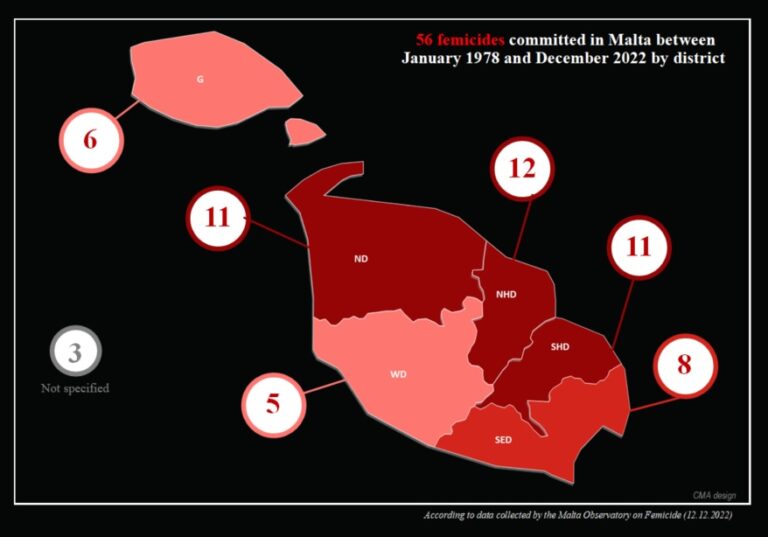Abstract
Femicide – the gender-motivated intentional killing of women – is not only the most extreme manifestation of gender-based violence against women but also the most violent manifestation of discrimination against them and their inequality. Despite the magnitude of the problem, and calls by the UN Special Rapporteur on Violence against Women, data on femicide was not officially and systematically collected in the EU and there was a lack of transnational tools for the study of femicide, before the European Observatory on Femicide began to develop an internationally comparable data base. Nevertheless, femicide is a notably under-researched subject. A common definition of femicide does not exist. Furthermore, harmful attitudes, behaviours and stereotypes, as well as a lack of understanding of the gendered dynamics of intimate partner femicides, impede prevention measures, including early and effective intervention. This policy brief consists of a summing up of the findings and outcomes of the research, capacity-building trainings and multi-stakeholder meetings conducted within the framework of the EU-funded project ‘FEM-UNITED – United to prevent IPV/DV Femicide in Europe’.
Downloads:








